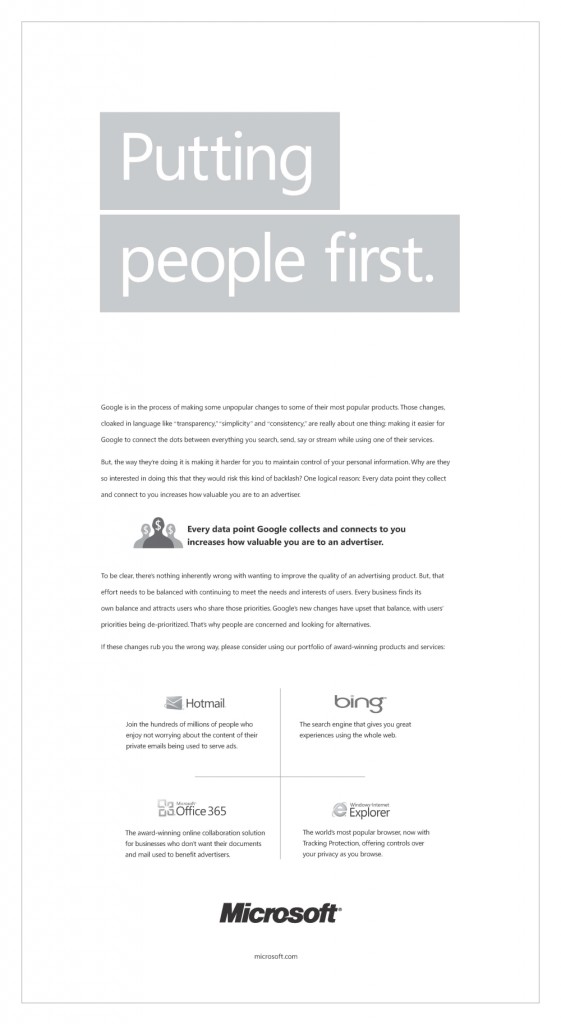As part of our ongoing exploration of the recent changes to Twitter, Facebook and Google, we asked Zemoga’s Head of Research Russ Ward for his take on Google’s new search practices, Here’s what he had to say:
Well it is no surprise that Google has created a great deal of discussion over its new “Search plus Your World” functionality within Google +.
The chatter all over the web includes concerns over privacy rights, security and the reactions by Twitter and how it may work with Facebook. Quite frankly everyone seems to be reticulating the same news and speculation, but how much of a leap into a new world of search do these new personalized search features afford.
So lets step back and look at what this new Personal Results button really does. From Google + a search will simply yield the usual keyword based search result – so no new functionality there.
Then, by clicking on the Personal Result button a new set of results are added based on the keyword relevance of your search to keyword data indexed within the information Google knows is within your personal data either in Circles or other public data Google has matched to you. The paper clip example Google is using shows this relevance and the simple result.
In real terms this is simply an automated advanced search with results you have most likely seen before. While being personal in nature and clever that it relates keywords to you personally, there is no real innovation here and no real ground breaking improvement to provide useful information.
But it’s what is not happening here that makes this function less useful? By default as Google is NOT scraping Twitter, Facebook or other third party social network, therefore the content presented is naturally biased by Google’s search algorithm and whatever is held in the users Circles account. It is from a search relevance perspective that this means that the Personal Results function can only provide limited results.
To put this to the test – I ran a search of my own (as a matter of disclosure I do not have any content in Google Circles) and my search results do not change in any way. This is the case with or without the Personal Results button active and occurs no matter what I search for.
The take away here is that there does not seem to be any real technological or search advantage here. Until Google gets access to other social media platforms in which you participate there is nothing more to be said because it is IRRELEVANT.


